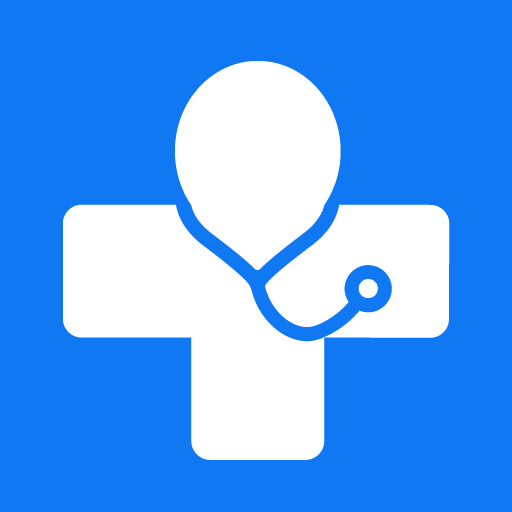Effective patient scheduling, and incorporating best practices, are essential for streamlining healthcare operations, optimizing resource utilization, and ensuring patient satisfaction in today's dynamic and demanding healthcare environment.
Check
Best Pathology Lab Software For Overall Lab Management
7 Importance of Patient Scheduling with Best Practices
Here are 7 Importance of Patient Scheduling with Best Practices.
1. Optimized Workflow Efficiency:
- Improved Time Management: Efficient scheduling ensures that healthcare providers can manage their time effectively.
- Minimized Wait Times: Patients experience reduced wait times, leading to higher satisfaction.
- Enhanced Staff Productivity: Proper scheduling allows staff to allocate resources optimally.
- Streamlined Processes: Well-organized schedules lead to smoother daily operations.
- Increased Patient Throughput: Quick and effective scheduling allows more patients to be seen.
Optimal scheduling enhances overall workflow efficiency, reducing wait times, increasing productivity, and improving patient throughput.
2. Enhanced Patient Satisfaction:
- Minimized Delays: Prompt scheduling reduces patient waiting, contributing to higher satisfaction.
- Accurate Appointment Reminders: Timely reminders improve patient attendance and satisfaction.
- Increased Accessibility: Flexible scheduling options accommodate patients' preferences.
- Personalized Care: Efficient scheduling allows for more focused and personalized patient interactions.
- Improved Communication: Better scheduling practices foster clearer communication between patients and healthcare providers.
Patient satisfaction is boosted through reduced delays, improved communication, and personalized care facilitated by effective scheduling.
3. Optimal Resource Utilization:
- Reduced Idle Time: Efficient scheduling minimizes idle time for both staff and equipment.
- Balanced Workloads: Distributing appointments evenly optimizes staff workloads.
- Resource Allocation: Proper scheduling ensures the right resources are available for each appointment.
- Prevent Overbooking: Avoiding overbooking prevents resource strain and exhaustion.
- Cost Efficiency: Optimal resource utilization leads to cost savings for healthcare facilities.
Effective scheduling enhances resource utilization, prevents overbooking, and promotes cost-efficient operations.
4. Improved Patient Access:
- Shorter Waitlists: Efficient scheduling reduces the length of patient waitlists.
- Flexible Scheduling Options: Offering various scheduling options increases accessibility for patients.
- Telehealth Integration: Seamless scheduling for telehealth appointments expands patient access.
- Extended Hours: Flexible scheduling, including extended hours, accommodates diverse patient needs.
- Reduced Barriers: Improved access to appointments helps overcome barriers to healthcare.
Patient access is improved through reduced waitlists, flexible scheduling, and the integration of telehealth services.
5. Enhanced Communication:
- Clear Appointment Instructions: Well-scheduled appointments come with clear instructions, reducing confusion.
- Efficient Follow-Up: Proper scheduling ensures timely follow-up appointments and communication.
- Effective Reminders: Automated reminders help patients remember and prepare for appointments.
- Accessible Information: Efficient scheduling systems provide easy access to patient information.
- Improved Coordination: Clear schedules facilitate better coordination among healthcare teams.
Effective scheduling promotes enhanced communication through clear instructions, efficient follow-up, and improved coordination.
6. Compliance and Regulatory Adherence:
- Appointment Documentation: Proper scheduling ensures accurate documentation for compliance.
- Regulatory Reporting: Adherence to scheduling standards facilitates regulatory reporting.
- Privacy Compliance: Secure scheduling practices contribute to patient privacy compliance.
- Resource Allocation Compliance: Following scheduling guidelines helps meet resource allocation regulations.
- Audit Preparedness: Well-documented schedules prepare healthcare facilities for regulatory audits.
Compliance with regulations is ensured through accurate documentation, adherence to standards, and privacy considerations in scheduling.
7. Data-Driven Decision Making:
- Performance Metrics: Scheduling data provides insights into the performance of healthcare facilities.
- Demand Analysis: Analysis of scheduling patterns helps anticipate patient demand.
- Resource Optimization: Data-driven scheduling allows continuous improvement and resource optimization.
- Efficiency Metrics: Monitoring scheduling efficiency helps identify areas for improvement.
- Strategic Planning: Informed by scheduling data, strategic planning leads to better long-term outcomes.
Data-driven decision-making is empowered by analyzing scheduling performance, anticipating demand, and optimizing resources.
Patient scheduling enhances healthcare efficiency, minimizing wait times and improving overall patient satisfaction by optimizing resource allocation and workflow management.
Summary:
Effective patient scheduling is crucial for optimizing workflow efficiency, enhancing patient satisfaction, utilizing resources efficiently, improving patient access, fostering communication, ensuring compliance, and enabling data-driven decision-making. These interconnected aspects collectively contribute to a well-functioning healthcare system, providing timely and quality care to patients.
Check Drlogy Plus Academy to get all answers related to hospitals, labs, clinics and patient management with all in one solution.

